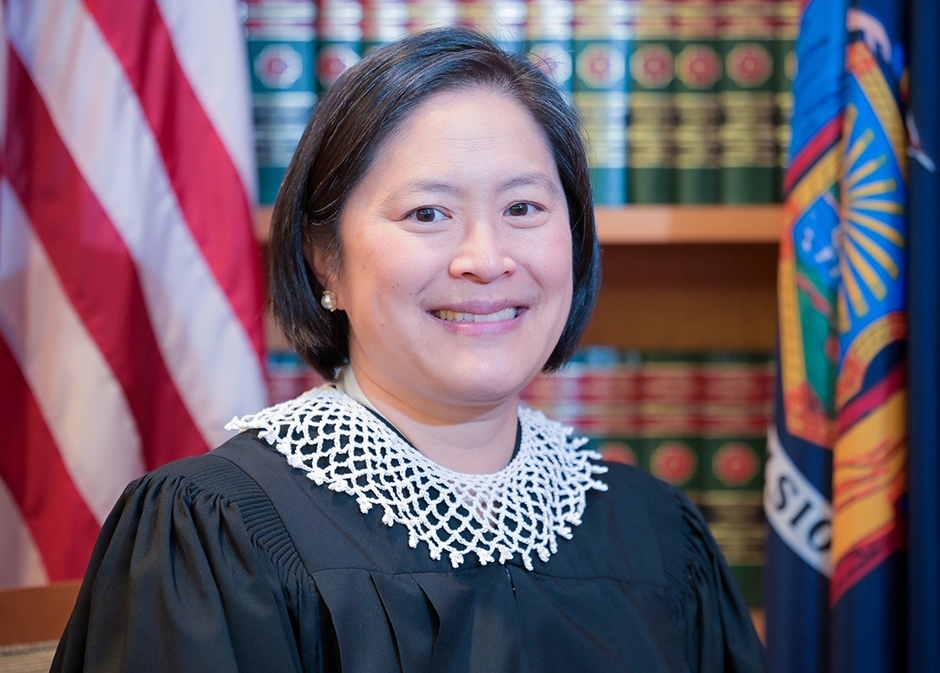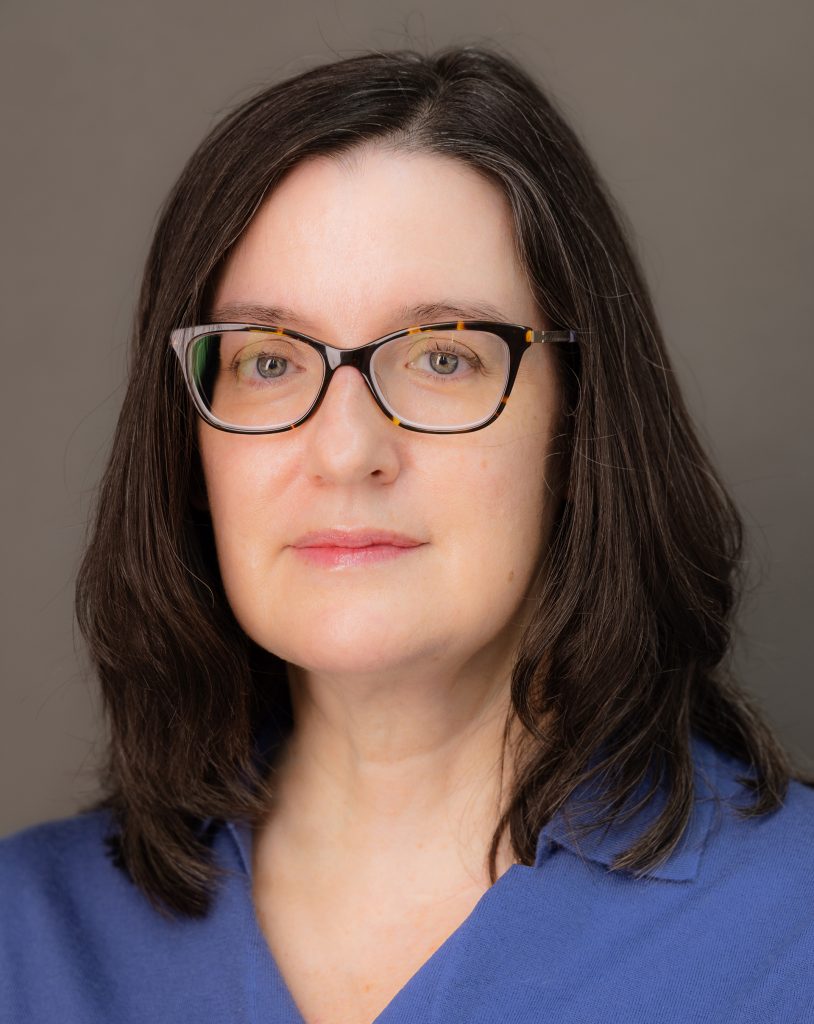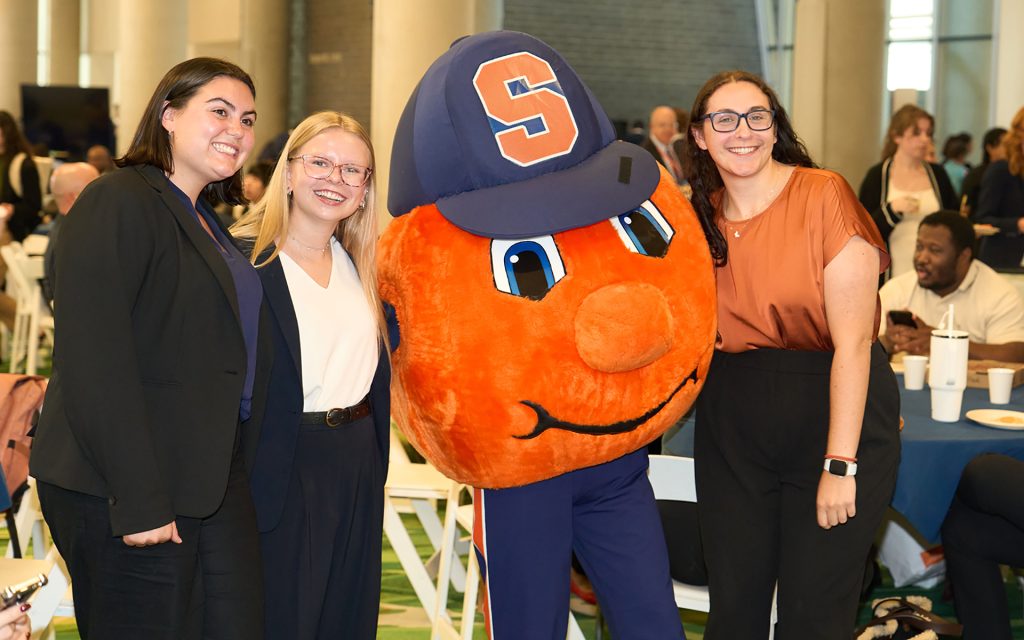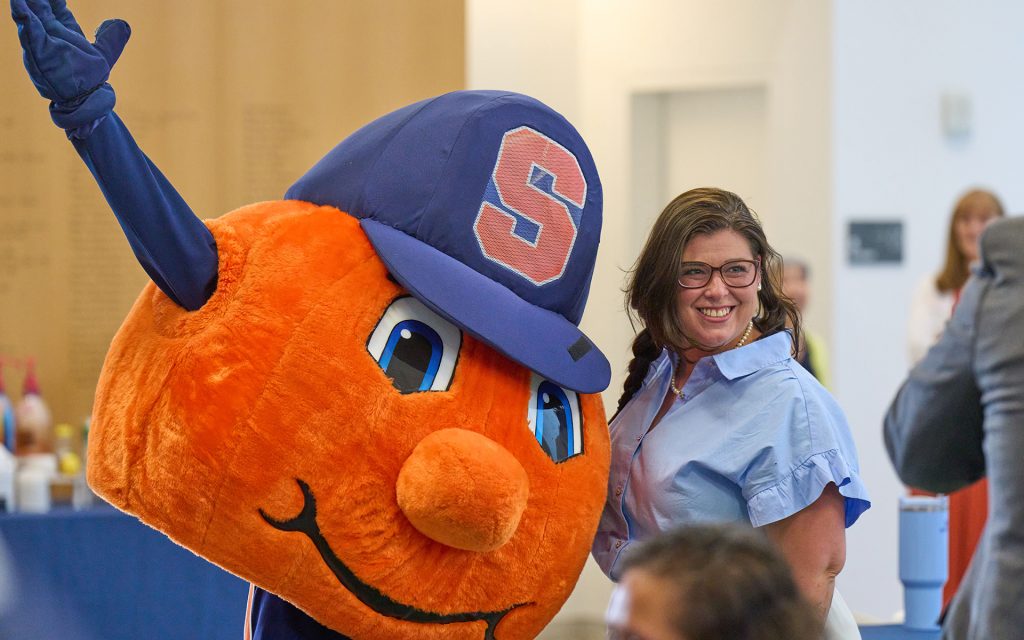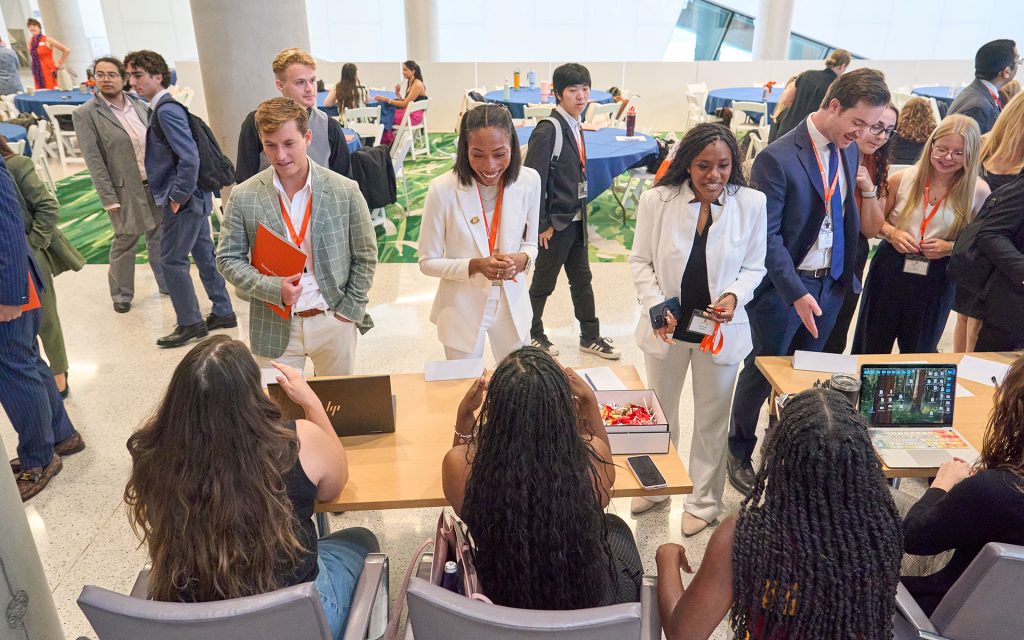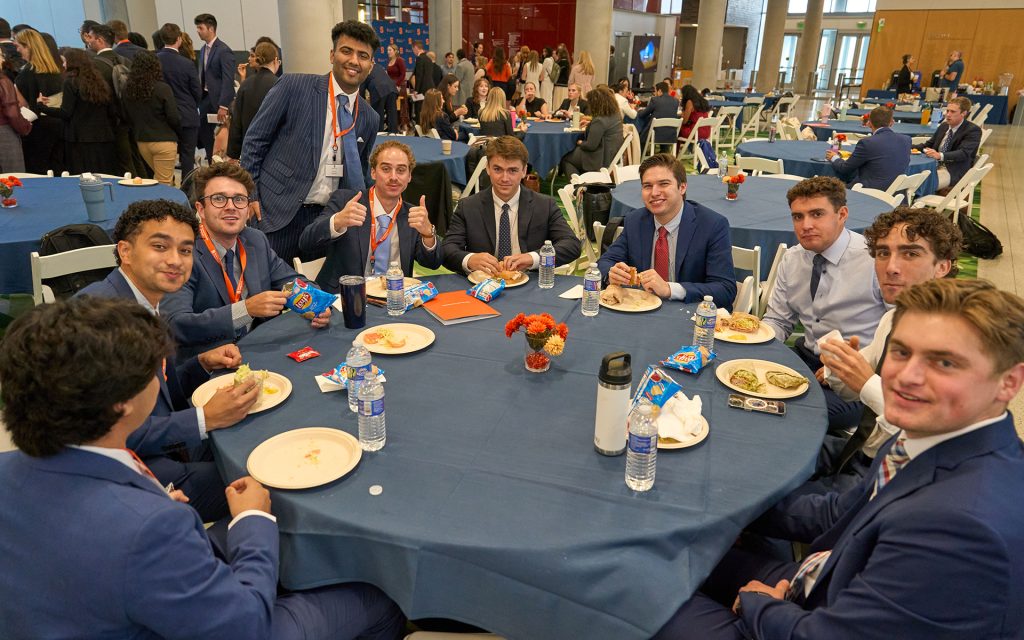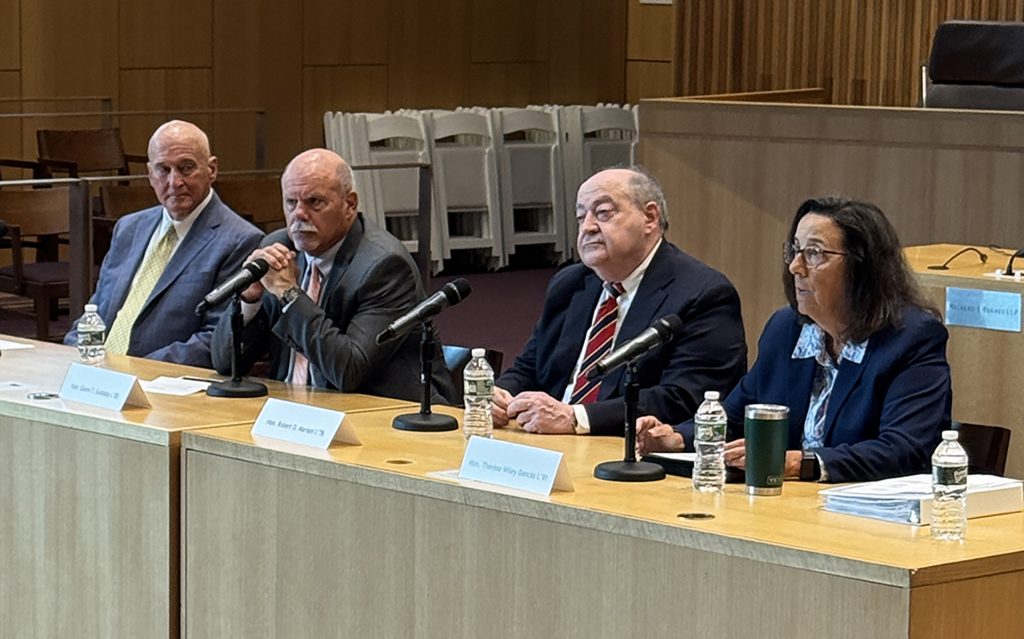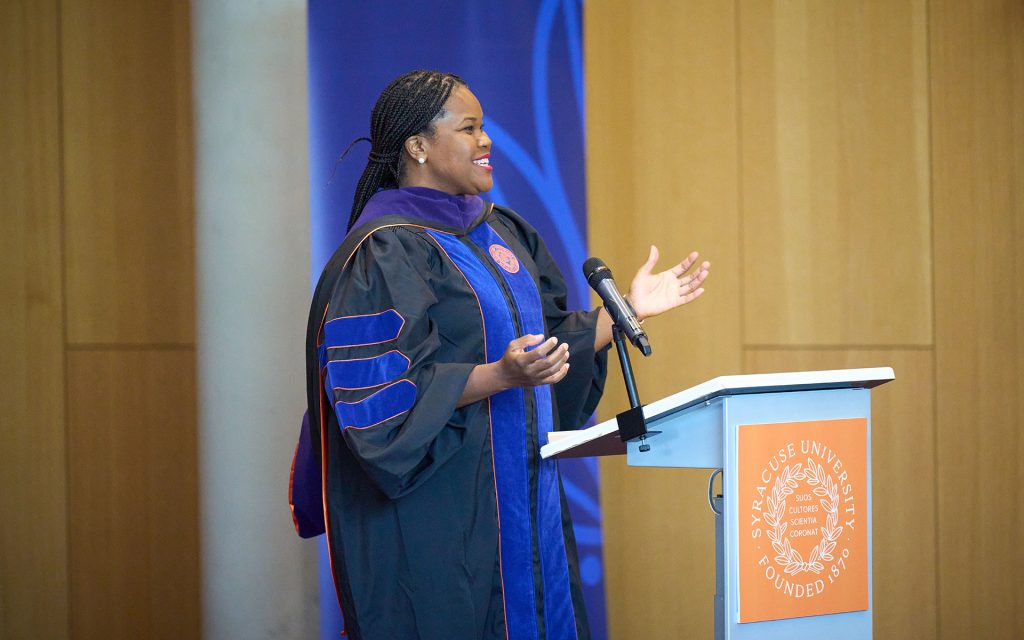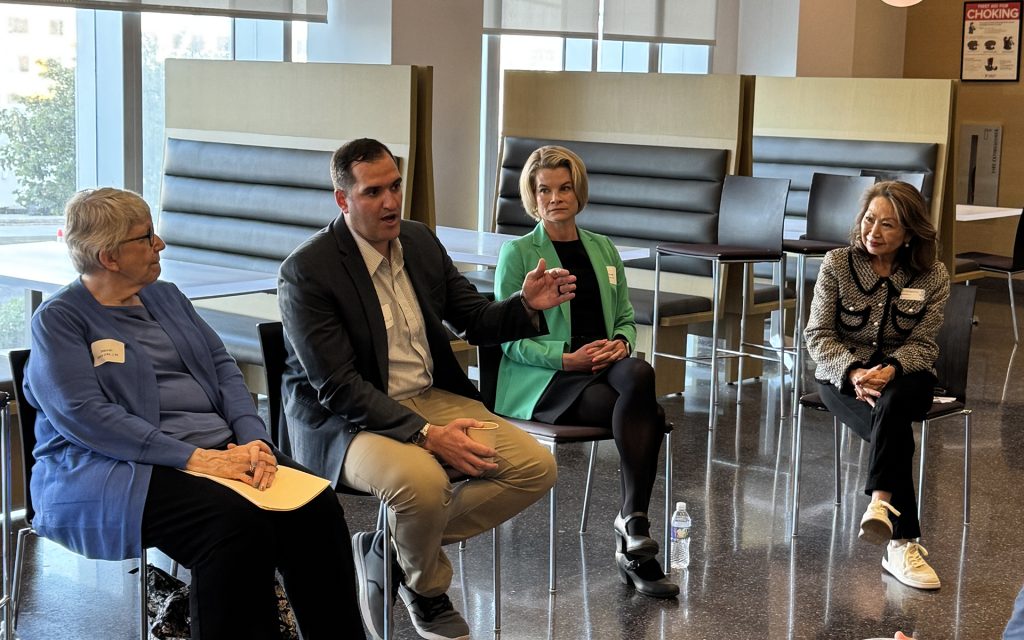What law student wouldn’t jump at the chance to work alongside a barrister with King’s Council (KC) status, an honor bestowed upon only the most experienced lawyers in the U.K.? Or assist judges in the Crown Court system, one of three senior courts in England and Wales?
These are just some examples of recent experiences that students undertook as part of Syracuse University College of Law’s LondonEx program. The oldest and only program of its kind in the nation — celebrating its 46th year — LondonEx has been offering law students. both from Syracuse Law, as well as other ABA-accredited law schools in the U.S. and Canada, a summer externship program that is a truly transformational experience.
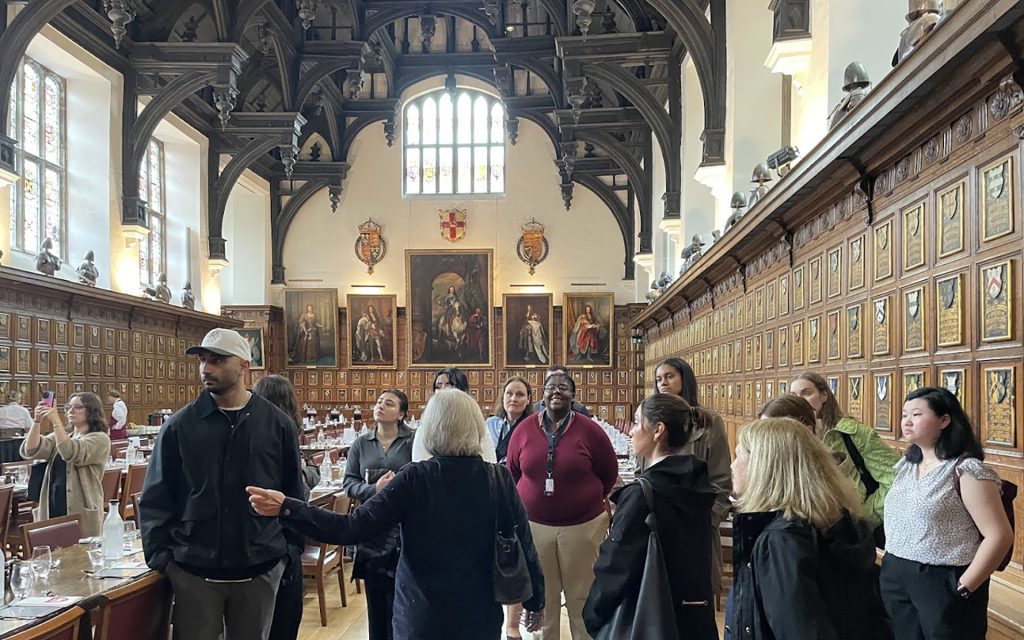
What Makes LondonEx Unique
While other law schools offer semesters abroad or other international programs, LondonEx is unique in that it offers a fully immersive seven-week program in London that allows students to participate in externships matched to their interests that allow them to work in a professional legal setting while refining skills and gaining an up-close look at another legal system and culture.
“We are exposing law students to the practice of law in a global setting. Working to match their interests with outstanding opportunities, students work alongside — often at workspaces only a few feet apart from barristers, solicitors and judges,” says Andrew Horsfall, study abroad specialist for Syracuse University. “The law students are always pleasantly surprised at what their mentors do for them, when they bring them along to court, put them to work on actual research, provide meaningful feedback, and give them the opportunity to return to law school with written work product and an expanded view of the profession.”
Program Structure
Working with Syracuse Abroad and its London Centre, Faraday House, law students arrive in mid-May to embark upon the seven-week, 5-credit program.
- Week One: The first week is spent in an intensive orientation that acquaints students with the British legal system through a variety of guest lecturers and cultural activities. They are immediately thrown into “Legal London” to see the Inns of Court and the Royal courts of Justice, often on the first day, in order to build context on the differences between the U.K. and U.S. legal systems before starting their placement experiences.
- Weeks Two-Seven: Externships are held four days a week for a six-week period with Fridays reserved for learning activities like skills training, networking, negotiation and gaining professional insights from those working in London’s legal system, including Syracuse University alumni.
- Program Conclusion: The program concludes with students presenting on topics of their choosing around a comparative aspect of law or legal culture they engaged with at their placements.
While the pace is quick, there is still time to soak in the culture of one of the world’s most dynamic cities as students take in a show in the West End, view the architecture of the Palace of Westminster, enjoy fish and chips at an authentic British pub or get a birds eye view of the Thames on the London Eye.
“Our seven-week program goes by very quickly, but its quick pace also allows students to wrap up the experience by early July with time to take on a second externship back in the U.S.— which some do every summer,” says Horsfall.
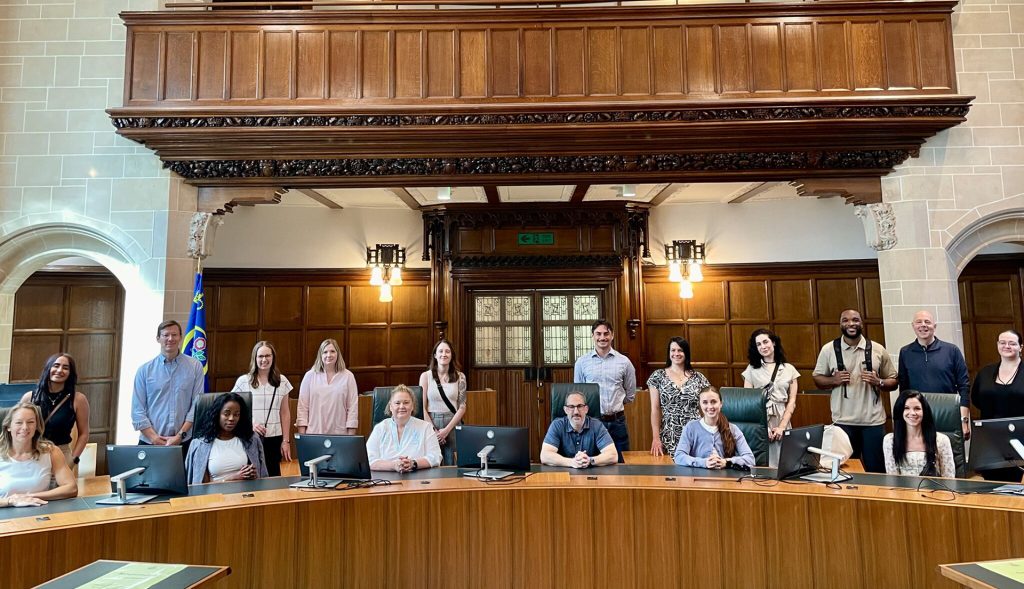
Student Perspectives
This past summer, 14 students completed the LondonEx program — seven from Syracuse Law and seven from a mix of other law schools.
Syracuse Law student Eric Boutrous L’27 chose to attend the LondonEx program for the opportunity to gain hands-on legal experience outside the U.S. He was placed under the mentorship of barrister Mark Warwick KC at Selbourne Chambers in the heart of London’s Inns of Court, where he was able to work on a variety of complex real property and civil matters involving easements, boundary disputes and professional negligence.
“I helped prepare arguments regarding implementing easements and necessity and had the opportunity to contribute research that was used in a court filing,” says Boutrous. “Presenting my work to my peers in the program challenged me to synthesize complex materials and communicate clearly the skills I know will be invaluable in my legal career.”
Boutrous also participated in a mediation session under Warwick’s supervision. “It was fascinating to observe how the parties and their legal teams approached negotiation, particularly in a system where mediation is increasingly encouraged,” he explains, noting he hopes to go into transactional law with a long-term goal of international litigation and arbitration. “Seeing how strategic tone, timing and presentation impacted the discussion gave me a new appreciation for the role of advocacy outside the courtroom and deepened my interest in alternative dispute resolution.”
Gurneet Sidhu L’26, joined the LondonEx cohort from the University of Ottawa, Faculty of Law, after seeking out a program that would allow her to gain experience abroad that would align with her busy schedule.
“LondonEx was a perfect mix of school and work experience, and, honestly, I couldn’t find another program that was at all similar to the quality of what Syracuse Law was offering,” says Sidhu, who was especially interested in honing her legal research skills through transactional work.
Having traveled to London before, she was thrilled to have an externship right in the heart of the city at the British Institute of International and Comparative Law (BIICL) where she worked on various research topics.
“Working at BIICL was great for gaining a global perspective of the law,” she says. “I was involved in many international law matters, which allowed me a better understanding on the impact of international law on domestic law.”
Richard Everett Jr. L’26 joined the group from Creighton University School of Law. He was assigned to a judge at the Inner London Crown Court of His Majesty’s Crown Court, giving him an insightful comparison of how the American and British criminal legal systems differ.
His favorite part of the experience, however, was conferring over lunch with the judges on a daily basis.
“This hour provided me with unprecedented access to the Crown Court judges, giving me the opportunity to ask questions about the proceedings I observed on a given day and clarify any points of confusion I may have had.”
After completing law school, Everett, who is currently an ensign in the U.S. Navy Reserve, will be joining the Navy’s Judge Advocate Generals (JAG) Corp.
“Syracuse’s LondonEx program has allowed me to observe how the criminal justice system of one of our allies functions,” he explains. “It’s crucial to be as diverse as possible in a global environment, especially when your job can take you anywhere in the world.”
A Lasting Impact
The experience of this year’s LondonEx program, as well as those over the past four decades, have left indelible impressions on the law students who have participated in this unique and up-close experience offered by Syracuse Law.
“London itself is a magnetic city full of history, culture and excitement, but that’s just the start of what our LondonEx students experience here as they enjoy unprecedented exposure to the people and places that truly represent a dynamic legal culture and system that is different from what they have been studying in law school,” says Horsfall. “Professionally, it can become a game changer for many students.”
For more information, visit Syracuse University College of Law’s LondonEx program on our website. The deadline for LondonEx Summer 2026 is Feb. 1.

